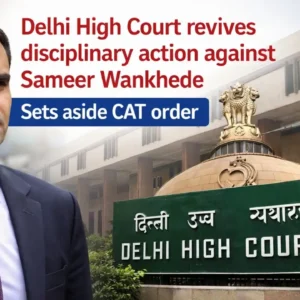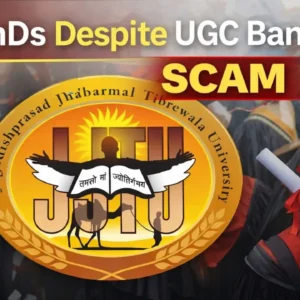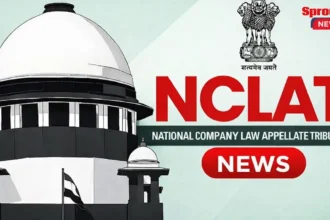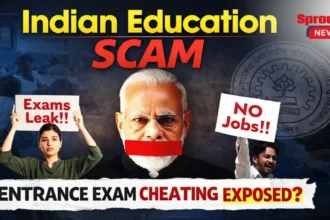Crisis of Ownership in MEIL
• MEIL Implodes: Family Feud Rocks Infra Giant
• Trust Betrayed: PP Reddy vs Megha Krishna Reddy
Unmesh Gujarathi
Sprouts News Exclusive
Contact: +91 9322755098
- Crisis of Ownership in MEIL
- • MEIL Implodes: Family Feud Rocks Infra Giant
- • Trust Betrayed: PP Reddy vs Megha Krishna Reddy
- MEIL Ownership Dispute: A Family Feud Threatens Corporate Stability
- Transfer of Shares and the Beginning of Betrayal
- Arbitration Drama: Involvement of a Former Chief Justice of India
- Governance Breakdown and Future of MEIL in Question
- Media Responsibility in Crisis Reporting: Time to Ban TV9?
- Also Read: Financial Fraud By Assam’s Shoriful Islam: 20 PANs, Dozens of Accounts in ₹65 Lakh Scam.
- A Corporate Meltdown Looming? Sprouts SIT Raises Red Flags
- Trust Broken, Future Uncertain
Megha Engineering and Infrastructures Ltd (MEIL) is embroiled in a bitter ownership dispute between founder PP Reddy and his nephew Megha Krishna Reddy. Alleged fraud, broken arbitration terms, and governance failures have destabilized the company. Sprouts News SIT demands regulatory intervention, while calling for a ban on TV9 for biased coverage.
MEIL Ownership Dispute: A Family Feud Threatens Corporate Stability
Hyderabad-based Megha Engineering and Infrastructures Limited (MEIL), a prominent player in India’s infrastructure sector, is now engulfed in an explosive internal ownership dispute that threatens to dismantle its very foundation. Once hailed as a symbol of family trust and unity, MEIL is facing a crisis that reveals a deeply fractured leadership at its helm.

The company, founded by P. Pichi Reddy (popularly known as PP Reddy), was envisioned as a legacy for his daughter, Megha Reddy, after whom the company was named. With the inclusion of his nephew, P. V. Krishna Reddy—also known as Megha Krishna Reddy—the company witnessed substantial growth and expansion. However, what was once a tight-knit family enterprise is now mired in betrayal, legal maneuvering, and financial uncertainty.
Transfer of Shares and the Beginning of Betrayal
In what was initially considered a symbol of trust and strategic succession planning, PP Reddy transferred 49% of MEIL’s shares to his nephew, Megha Krishna Reddy. The intention was to ensure stability and continued family control over the company. However, this decision soon became the catalyst for a power struggle.
In 2022, Megha Krishna Reddy presented PP Reddy with documents for signature, citing urgency. Believing in the integrity of his nephew, PP Reddy signed the papers without detailed scrutiny. What followed was nothing short of corporate treachery. The documents—unknown to PP Reddy—restructured the company’s ownership in favor of Megha Krishna Reddy and removed PP Reddy’s two sons-in-law from the company’s board of directors.
What began as a move to preserve family unity has now escalated into a full-blown internal battle that may permanently scar MEIL’s legacy and operations.
Arbitration Drama: Involvement of a Former Chief Justice of India
As the truth unraveled, PP Reddy prepared to initiate legal proceedings against his nephew, alleging misrepresentation and fraud. Fearing public exposure and reputational damage, Megha Krishna Reddy proposed a private arbitration, mediated by a retired Chief Justice of India.
The arbitration culminated in an agreement, with Megha Krishna Reddy agreeing to a ₹14,500 crore settlement. This figure, if honored, would have closed the chapter on the ownership dispute. However, in a shocking turn of events, Megha Krishna Reddy failed to pay the agreed arbitral fees to the retired CJI, casting doubt on his commitment to the settlement.
According to sources closely observing the matter, the failure to honor even this basic financial obligation speaks volumes about the intent behind the arbitration process. For now, the legal clouds hover large, and the arbitral agreement lies in limbo.
Governance Breakdown and Future of MEIL in Question
The ownership chaos has paralyzed MEIL’s decision-making and brought its internal governance to a standstill. Without clarity on leadership and control, critical infrastructure projects and financial operations remain vulnerable. Stakeholders—ranging from government clients to financial institutions—are now treading cautiously.
Sprouts News Special Investigation Team (SIT) has learned that internal documents and boardroom testimonies reveal a lack of transparency in shareholding communication. The situation has also raised alarms among corporate governance experts, who question how a company of MEIL’s stature allowed such opacity to persist.
The unresolved feud is not just a private dispute—it holds implications for public infrastructure, banking relations, and the perception of family-run businesses in India.
Media Responsibility in Crisis Reporting: Time to Ban TV9?
Amid this corporate crisis, media responsibility has come under sharp focus. Notably, TV9—allegedly influenced by business interests tied to MEIL—has failed to cover the internal feud with journalistic neutrality. Their silence, or selective reporting, on this high-stakes dispute has led to calls from industry watchdogs and civil society groups demanding a ban on TV9 for its biased and compromised journalism.
Several independent journalists and media outlets such as The Wire, Newslaundry, and Sprouts News Special Investigation Team (SIT) have highlighted the growing issue of corporate-media collusion in cases involving powerful conglomerates. When national television networks ignore such explosive stories, it reflects not just poor journalism but active suppression of public interest news.
It is imperative that media houses are held accountable, especially when they deliberately choose silence over truth in matters affecting corporate integrity and public trust.
Also Read: Financial Fraud By Assam’s Shoriful Islam: 20 PANs, Dozens of Accounts in ₹65 Lakh Scam.
A Corporate Meltdown Looming? Sprouts SIT Raises Red Flags
MEIL’s ownership crisis is not merely a boardroom battle—it’s a structural collapse unfolding in slow motion. What started as a family misunderstanding has mutated into a corporate governance debacle with far-reaching consequences.
Sprouts News Special Investigation Team (SIT) strongly urges regulatory bodies such as SEBI and the Ministry of Corporate Affairs to probe this ownership manipulation. It also calls upon the judiciary to expedite arbitration enforcement, as prolonged limbo benefits neither party—nor the nation’s infrastructure development.
With ₹14,500 crore at stake and a collapsed internal structure, MEIL stands on the precipice of a corporate meltdown. As public trust and financial credibility erode, the spotlight must remain firmly on accountability, transparency, and ethical business practices.
Trust Broken, Future Uncertain
The MEIL saga stands as a cautionary tale for India’s booming infrastructure and family-run corporate ecosystem. It showcases how fragile internal trust, if abused, can derail even the most robust businesses. More importantly, it underscores the urgent need for legal safeguards, impartial media, and shareholder awareness.
The question remains: Will MEIL rise from the ashes of betrayal, or will it serve as a stark example of how unchecked ambition can destroy an empire built on trust?

















